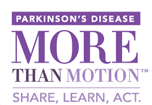
AI and the Future of Medical Care
The phrase artificial intelligence sounds like something out of a science fiction novel. But artificial intelligence otherwise known as AI is very real, and it has been changing the way health care is practiced since the early 1960s. Within the area of medicine, artificial intelligence is a branch of computer science capable of analyzing complex medical data to diagnose, treat, and predict outcomes in different clinical scenarios. To date, several major hospital networks have incorporated AI into their treatment plans.
Woebot
Chatbots, computer programs with the ability to simulate conversations via text or audio, offer personalized health assessments and treatment advice, and can help patients better track and make sense of their health data. Woebot, for example, a talk therapy chatbot created by a team of Stanford psychologists and AI experts, uses mood tracking, curated videos, and word games to help people manage mental health.
Babylon
Babylon Health, a technology startup in the U.K., developed the Babylon app, which asks patients tailored questions to best assess their symptoms and then provides treatment advice from a doctor or nurse. It even allows patients to book video or audio consultations with their doctors in seconds.
Aidoc
Radiologists use CT scans or MRIs to detect abnormalities in patients. But to do this accurately, they must acquire sufficient data to produce high-quality images which can require an increased radiation dose or uncomfortably long scan times. That’s why Elad Walach launched Aidoc, AI software that analyzes medical images and flags the most acute abnormalities helping radiologists prioritize life-threatening cases. In August, Aidoc received FDA approval for detection of acute intracranial hemorrhage (a type of bleeding inside the skull) cases in CT scans.
AUTOMAP
Researchers at the Athinoula A. Martinos Center for Biomedical Imaging at Massachusetts General Hospital have also addressed the challenge of improving medical imaging with a new technique based on AI and machine learning. A key part of clinical imaging is image reconstruction transforming the raw data from the scanner into images that radiologists can study. Typically, a radiologist has very limited control over the reconstruction method and can only adjust certain parameters that affect the image quality, including the “reconstruction algorithm,” which determines the image resolution. But it’s not always clear which algorithm to use. AUTOMAP (automated transform by manifold approximation) automatically uses the correct image reconstruction algorithm to produce clear, accurate images.
Last year, researchers from Harvard University and the University of Vermont combined machine learning tools and Instagram to improve depression screening. Using color analysis, metadata, and algorithmic face detection, their computers were able to identify signs of depression from Instagram photos with 70% accuracy.
Speech
IBM Research, a community of more than 3,000 researchers in labs around the world, is using transcripts and audio from psychiatric interviews, coupled with machine learning techniques, to find patterns in speech including meaning, syntax, and intonation that provide telltale signs of early-stage developmental disorders, mental illness, and degenerative neurological diseases. This will allow doctors to better predict, monitor, and track certain conditions.
Biotechnology
Biopharmaceutical researchers are leveraging AI in drug discovery to find ways to get new treatments to patients faster. One way UCB is doing this is by using machine-learning approaches that integrate lots of different data to try to predict individual drug response.
Whether through an app on your phone, medical imaging, analysis of Instagram photos, or the words you speak and write, AI is changing the healthcare landscape one mechanism at a time and it’s only going to get bigger.




